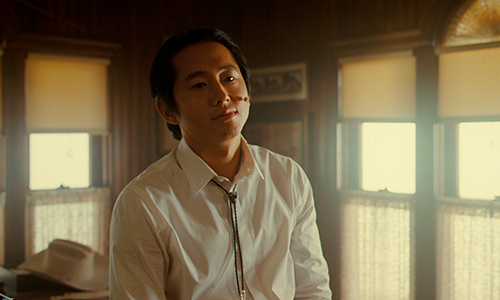
What did you make of NOPE? If you've been to see Jordan Peele's latest chiller in Cineworld, you've undoubtedly come away with questions. A lot of questions.
The Get Out and Us filmmaker revels in keeping an audience off-balance with his canny mixture of dark humour, incisive social commentary and all-out horror. However, even by Peele's usual standards, NOPE is a discombobulating, overwhelming experience, aided by its visual presentation that makes full use of IMAX-assisted cinematography.
With spoilers, here's our breakdown of the ending of NOPE, plus our examination of the movie's multiple meanings. Scroll down to check it out, and after you've finished reading, be sure to give us a social reaction with your own take on the movie.
WARNING: NOPE SPOILERS AHEAD
It begins with a violent chimpanzee attack and ends with an alien creature being captured on camera by a theme park wishing well. The sheer contrast between those two images alone exemplifies the unpredictable and wide-ranging texture of Jordan Peele's NOPE.
Peele's debut feature Get Out was an absolutely drum-tight fusion of Ira Levin and 12 Years a Slave, winning Peele the Oscar for Best Original Screenplay (he became the first African-American filmmaker to do so). However, NOPE owes more to the relatively oblique nature of the director's second feature, Us.
It was fairly evident as to the main takeaway in Get Out, a movie that aimed to skewer insidious liberal racism, whereas the filmmaker's two subsequent movies intentionally throw out more questions than answers. So, what are we to make of NOPE's main message? Is there, in fact, a central message, or several vying for attention all at once?
It may seem as if it's the latter, but NOPE has more connective tissue between its seemingly disparate characters than it first appears. In fact, rather than starting with a focus on the nominal stars, Daniel Kaluuya and Keke Palmer, one could argue that the real heart of the piece lies with the third-billed Steven Yeun, who plays the tormented and haunted Ricky 'Jupe' Park.
After all, the movie's opening sequence is a flashback to a pivotal moment in the character's life. We glimpse the aftermath of a horrific animal attack on the set of the fictional studio sitcom Gordy's Home, named after the chimp who ultimately launches the assault. (Peele allegedly drew inspiration from the notorious 2009 attack undertaken by American-raised chimpanzee Travis.)
As a former child star on Gordy's Home, the young Ricky was witness to the ape's violent mauling of his co-stars. Several of the actors wind up dead and one ends up horrendously disfigured only to reappear during a later, equally disturbing, part of the NOPE narrative.
Ricky, however, managed to survive the incident, the exact reasons for which continue to remain somewhat elusive, and revealed only in fragmentary fashion as the movie later returns to its opening set-up. Reinforcing the importance of Ricky's character, the full reveal of his Gordy backstory is treated to its own chapter, simply titled 'Gordy'.
Peele would not have extrapolated a singular focus on Ricky was he not pivotal to the movie's central thesis. During the aforementioned 'Gordy' segment, we fill in the context surrounding that bloody yet briefly glimpsed opening salvo, and we realise that the camera was taking the point of view of young Ricky himself, cowering beneath a studio table in absolute terror.
The gore-drenched and frenetic Gordy, in locking eyes with us the audience (a truly terrifying moment), is, in fact, locking eyes with Ricky. Peele's camera then stretches the length of the POV shot and builds tension to quite appalling proportions as the deadly chimp approaches the profoundly vulnerable child. One must credit the superb motion-capture performance of Terry Notary, a veteran of such sequences in the rebooted Planet of the Apes series.
However, the animal doesn't attack Ricky. Instead, he extends a bloody paw beneath the table and initiates some kind of cross-species fist-bump. In the carefully cut-together trailers, we had glibly assumed this was the fist of some kind of alien creature, tied into the movie's apparent extraterrestrial threat.
It says something that said image is actually connected to much more familiar, Earthbound iconography, resulting in what is the film's most menacing sequence. The real tragedy of the sequence occurs when Gordy is subsequently shot dead, instilling in the young, impressionable Ricky a profound sense of tragedy and trauma.
This bears out in the present-day sequences where we meet the adult Ricky, now the owner of the tacky Wild West theme park Jupiter's Claim. Such is the extent of Ricky's PTSD that he has kept hold of many items from Gordy's studio attack in a secret nook behind his office. This includes a bloody shoe that belonged to one of his former co-stars, one that, mysteriously, was standing upright of its own volition at the height of the chimp's massacre.
It turns out that Ricky has been attempting to communicate with a mysterious, sky-bound entity. This is the creature that has also cast a tragic pall over the lives of nearby Hollywood horse-wranglers Otis 'O.J.' Haywood (Kaluuya) and his sister Em (Keke Palmer), whose father (Keith David) was inadvertently killed by the creature after it spat out the non-organic belongings of its first victims.
The organism is subsequently dubbed 'Jean Jacket' by the siblings, named after one of Em's favourite horses whom the family was forced to sell off. Jean Jacket becomes the common element between the Haywoods and Ricky, beginning when O.J. spots nighttime activity at Jupiter's Claim, which then draws the object's attention.
Ricky's later attempts to summon Jean Jacket, which largely disguises itself in a cloud, backfire horribly. Midway through the movie, in a bid to impress the Jupiter's Claim crowd, Ricky attempts to lure the object with one of the horses that he's purchased from the Haywoods, surmising that the apparent UFO is fond of abducting organic matter.
However, Jean Jacket proves unpredictable in the most tragic kind of way, and maybe even sees through Ricky's scheme when he and the surrounding crowd, including children, are horrifically sucked up and ingested inside the entity's stomach. Compounding the irony: one of Ricky's surviving cast members from the Gordy's Home attack is in the crowd, bearing the horrible scars from the incident, and is consumed as well.
The impressionistic screaming and brilliant cinematography, courtesy of Christopher Nolan's regular collaborator Hoyte van Hoytema, results in a shuddersome sequence that may be Peele's most terrifying to date. However, it's not just for sensational effect. Rather, it's our first sign that Jean Jacket is not actually a UFO but instead takes the shape of what we perceive to be a flying saucer.
The abduction sequence emboldens what may be the film's central message: the exploitation of wild animals and the threat contained therein. In attempting to bait what he thinks is an alien spacecraft, Ricky instead unleashes animalistic anger that condemns not only him but everyone around him.
Having survived the attack by Gordy, Ricky has seemingly been carrying around something of a God complex, a very human weakness. He mistakenly thinks that such controlling principles can be carried over into his interactions with Jean Jacket, only for nature to prove him wrong in the most devastating fashion.
The ghastly coup-de-grace comes later on when Jean Jacket positions itself above the Haywood ranch. The layered screaming indicates that, at this stage, its victims are still alive. But not for long: the wailing swiftly cuts off and blood rains down on O.J. and Em's house as the people are finally consumed, a move that appears to signal malicious, sentient intent.
The motif of animal exploitation is studded throughout Peele's movie in ways that are both overt and covert. At the start of the movie, O.J. and Em are attempting to enlist one of their horses in a glossy commercial overseen by veteran cinematographer Antlers Holst (Michael Wincott).
Despite O.J.'s protestations that the crew needs to give the animal some space, and to avoid reflective surfaces like mirrors, the horse bolts after it glimpses its own reflection. Consequently, the Haywoods lose the lucrative contract and are forced to sell the horse to the soon-to-be-doomed Ricky.
The motif of eye contact, particularly with regard to animals, is one of NOPE's most important elements. It's strongly implied that young Ricky survived his traumatic encounter with Gordy because he didn't make direct eye contact with the chimp – either that or the chimp couldn't see the child properly for being largely concealed beneath the table.
Regardless, the older Ricky makes the mistake of staring at the emergent Jean Jacket head-on. The monster then appears to take this as a direct challenge, as a wild bear may well do when one stumbles upon it in the wild. The results for Ricky and his attendant crowd are tragic.
The act of seeing informs Peele's aesthetic and thematic choices in NOPE. The poster, showing the movie's main players staring upwards at something unseen, conveys a level of Steven Spielberg-ian awe, and yet, as in many of Spielberg's own movies, the act of looking is perhaps laced with a distinct sense of menace.
NOPE compels the audience to see in the same manner as the movie's characters. By lensing the movie with IMAX cameras, Peele crafts a horrible nightmare that is nevertheless so visually arresting and alluring that we can't help but be sucked in by it (figuratively speaking, which is more than can be said for Ricky and the rest of Jean Jacket's victims).
Ultimately, NOPE utilises a fantastical conceit to communicate messages about objects and ideologies that are far closer to home. Even the movie's main antagonist, the looming Jean Jacket, is presented as a biological organism rather than the sort of cheesy UFO present in 1950s sci-fi B-movies. It's a typically clever subversion from Peele, implying that all creatures, be they from this Earth or elsewhere, are governed by instinctive, even violent principles.
In that sense, Jean Jacket shares more in common with the horses it devours than we first realise. More pertinently, Jean Jacket is the narrative extension of the rampaging yet tragic chimp Gordy, a creature exploited and antagonised into action, and clearly behaving with its own sense of self-awareness to the detriment of those around it. The film's essentially compassionate message is evident in the recognisable form of a chimpanzee and is also refracted through the spectre of something apparently otherwordly.
The movie starts off on a relatively intimate basis with Gordy's attack (the intimacy is surely what compounds the claustrophobic horror), and then expands to take in Jean Jacket's menace. But although the visual language of the movie gets bolder, the desert vistas get bigger and Michael Abels' terrific score eventually channels Ennio Morricone's Spaghetti Westerns, the movie is distilling the essential message of the opening flashback sequence.
NOPE isn't really a movie about aliens but about the atavistic, driving forces that compel organisms from all corners of the galaxy. It's also a story about our very human tendency to vacillate between an instinctive notion to look and an equally instinctive notion to run away. Effectively, it's a two-hour rumination on the fight or flight principle (fused with a not-so-subtle environmental message of which David Attenborough would surely be proud).
After all, how often are we compelled to look at something morbid and terrible just to crave our own deep-seated desires? NOPE exploits this particularly human kind of fallibility to both horrific and satirical effect. Kaluuya's deadpan delivery of the movie's one-word title during a moment of extreme terror is a brilliant example of how Peele can both build and alleviate tension during the course of a single set-piece.
It's evident that NOPE isn't about one thing. Heck, it might not really be about anything that's been written here. Such is Jordan Peele's trust in the audience, in one's ability to take away any number of implicit meanings. Peele's ability to craft original, challenging movie experiences, no matter how knotty they appear to be, is a refreshing salve in today's climate.
Has this made you want to see NOPE again? Then click here to book your NOPE tickets and tweet us your theories on the movie @Cineworld.
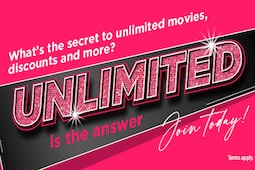
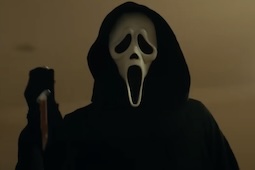
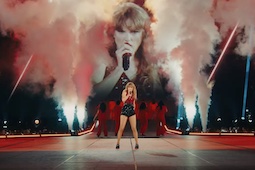
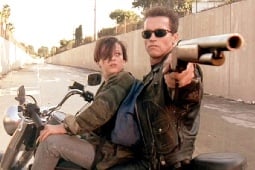
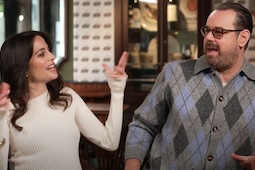
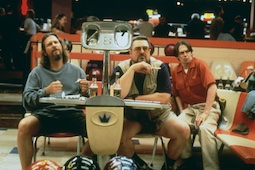
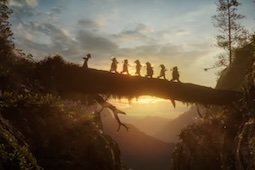
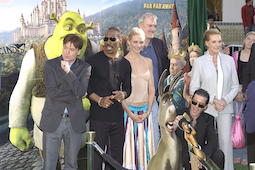
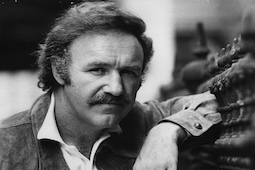
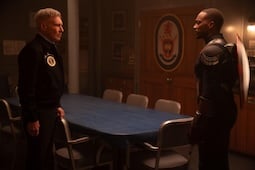
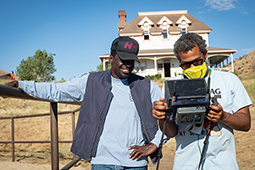


.jpg)
.png)





